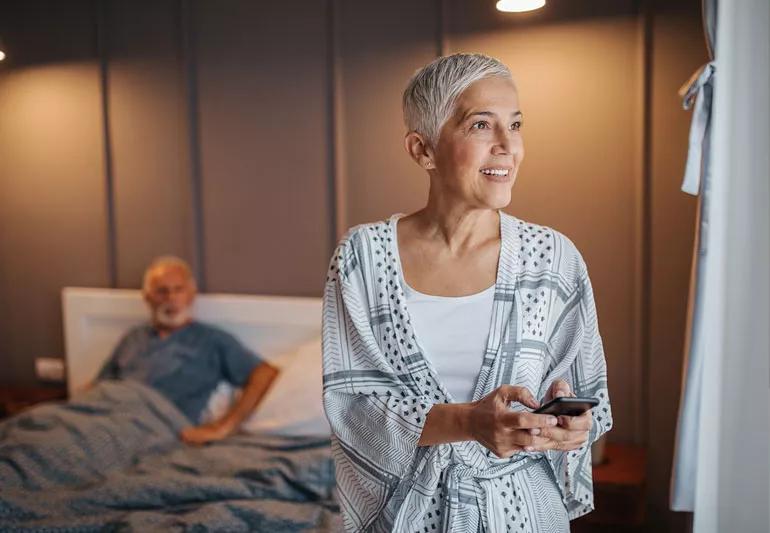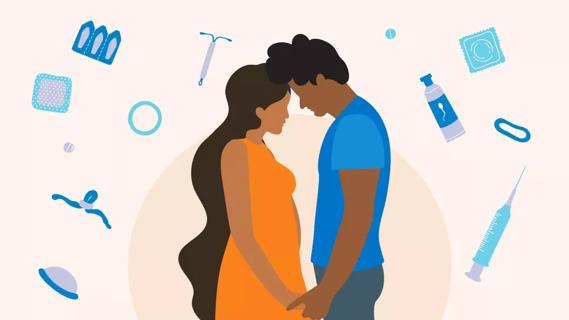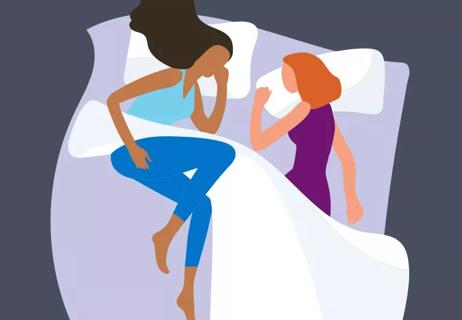Overcome challenges and bring back pleasure

Has sex become more of a chore than a pleasure? Or worse, has it become painful?
Advertisement
Cleveland Clinic is a non-profit academic medical center. Advertising on our site helps support our mission. We do not endorse non-Cleveland Clinic products or services. Policy
For many women over the age of 50, these feelings can be common, says gynecologist Katie Propst, MD. After menopause you may face an increasing number of barriers to sex, including dryness and constriction of the vagina or medical conditions such as diabetes and extra weight.
You are not alone, Dr. Propst stresses. She offers the following tips to help you overcome difficulties so you can enjoy an active sex life well into your 70s and 80s.
The vagina can become narrower if you are not sexually active, so one of the most important things you can do to preserve function (avoiding vaginal atrophy) is to continue having intercourse. Try using a lubricant during sexual activity, and if this isn’t sufficient, you can also use moisturizer. Lubricants are used just for the purpose of intercourse, and a moisturizer for the vagina is like a moisturizer for the skin on the rest of your body. You use it on a regular basis if you’re experiencing dryness. Some moisturizers are made for both purposes and will state that on the package.
To avoid sensitivity to any product, be sure to use water-based and fragrance-free lubricants and moisturizers. And be sure to avoid douching as it can be drying.
Advertisement
To address the pain of vaginal dryness, allow plenty of time for arousal – enjoy that foreplay. And experiment with different positions with your partner. You can also take a warm bath before sex to relax your muscles and prepare for intimacy.
Dr. Propst also notes that the stress of life can often derail your sex life. “We are all so busy, but if you want to continue to be intimate with your partner, you need to be intentional about making time for him or her.” She notes that this may mean scheduling dates or taking time away from other things to keep that connection alive.
Dr. Propst says it can often be overall health or an underlying medical condition that is lowering your libido. Sometimes reviewing your medications and making adjustments to your dosages or changing the medications you are taking will help. A clinician may also recommend medications such as low-dose vaginal estrogen for postmenopausal women if lubricants and moisturizers are ineffective. If the estrogen does not help, there are other medications and treatments to help with the discomfort.
Be sure you are managing any health conditions, getting enough sleep and avoiding too much alcohol. If you’ve gained weight, focus on getting more physical activity. It’s not always easy for people at midlife to lose a lot of weight, but if you are moving and feeling better, you’ll have more energy and confidence. One of the best and easiest exercises can be walking at a brisk pace on a regular basis.
Focus on communication and intimacy. Keep in mind that talking about sex really should be the same as talking about any challenging issue in a relationship. Dr. Propst suggests describing how you “feel” about certain situations rather than making accusations against your partner if you are having a debate. Find time and a neutral place and talk about a goal of making sex enjoyable for both of you.
Also be honest with yourself, she says. “Ask yourself if there are things going on in your life or in your relationship that keep you from wanting to have sex with your partner. A lack of desire is often related to relationship issues.” Dr. Propst adds that relationship roadblocks tend to affect women more than men when it comes to sex. If you cannot find solutions on your own, a therapist may be able to help you and your partner.
Certain medical conditions limit sexual activity. This is when individuals and couples need to get creative. Try different sexual positions to make intercourse more comfortable, or try alternatives to intercourse such as massage, different types of lubricants and sexual toys. Enjoy the intimacy of these alternatives and remember to laugh. And don’t get discouraged if you don’t agree on everything – try to find something you both accept as fun or interesting to try.
Advertisement
Sometimes patients can feel rushed or uncomfortable talking about issues of sexuality when they see their gynecologist, but don’t miss this opportunity to have a real conversation with your doctor. “Ob/Gyns understand the reasons for dysfunction and we can work with you to get to the underlying problem,” says Dr. Propst. “We want to help you get back on track – and we can guide you to additional resources if you need them.”
She suggests going to the American College of Obstetrics and Gynecology site to learn more about women’s sexual health and for advice on how to bring up the topic of sex with your doctor.
Advertisement

Sign up for our Health Essentials emails for expert guidance on nutrition, fitness, sleep, skin care and more.
Learn more about our editorial process.
Advertisement

Arousal without orgasm can be uncomfortable, but it’s no reason to pressure sexual interactions

Some foods are thought to rev up your sex drive, despite lack of scientific evidence

If anxiety is keeping you from having the sex life you want, communication, education and therapy can help

Anorgasmia is a fairly common concern with a wide range of physical and psychological causes

Your sexual history directly influences your physical, mental and emotional health in a multitude of ways

‘Safer sex’ means STI prevention, avoiding unintended pregnancies and psychologically safe practices for everyone

Medications and therapy can help get your groove back

It’s perfectly normal for gas pockets to ‘evacuate’ during the motions of sex

Even small moments of time outdoors can help reduce stress, boost mood and restore a sense of calm

A correct prescription helps your eyes see clearly — but as natural changes occur, you may need stronger or different eyeglasses

Both are medical emergencies, but they are very distinct events with different causes